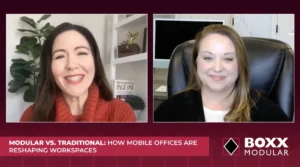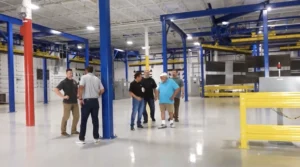What a Saudi Arabia & Schneider Electric Partnership Means for Engineer Training
How can engineer training programs keep up with evolving on-the-job needs and technology demands?
Consumers and businesses alike are constantly pushing for faster technology, taller buildings and bigger advancements every day. In order to make these feats happen, there have to be engineers and specially-trained professionals behind every project, whose skill sets are rapidly evolving with the pace of commercial demand and new innovative technologies. But with increased demand for these projects, there have to be robust education programs to train the people to work on them.
Last week the Saudi Council of Engineers signed a Memorandum of Understanding (MoU) with Schneider Electric to launch an accredited engineer training program to help teach specialized engineers the skills necessary to continue working on major projects. Ron Stefanski, host of the DisruptED podcast, says more programs like this will be necessary to keep up with demand for businesses and consumers.
Ron’s Thoughts on Engineer Training
“We’re gonna see some recent disruption with Saudi Arabia announcing that they’re going to be partnering with Schneider Electric to launch an engineering training program in the country. Fascinating when you think about it, but what’s happening in the world at large?
Engineering demand is going through the roof. And we have limited capacity in our current education system to accommodate it. So what’s gonna happen now? More and more, you’re going to see public and private partnerships unleashing innovative, agile ways to get people the training education skills they need to succeed in this 5G, wired, technologically-infused, globally interdependent world.
Stay tuned. We’re gonna see a whole lot more change in the world of engineering, in the world of education, and the world of online training.”








